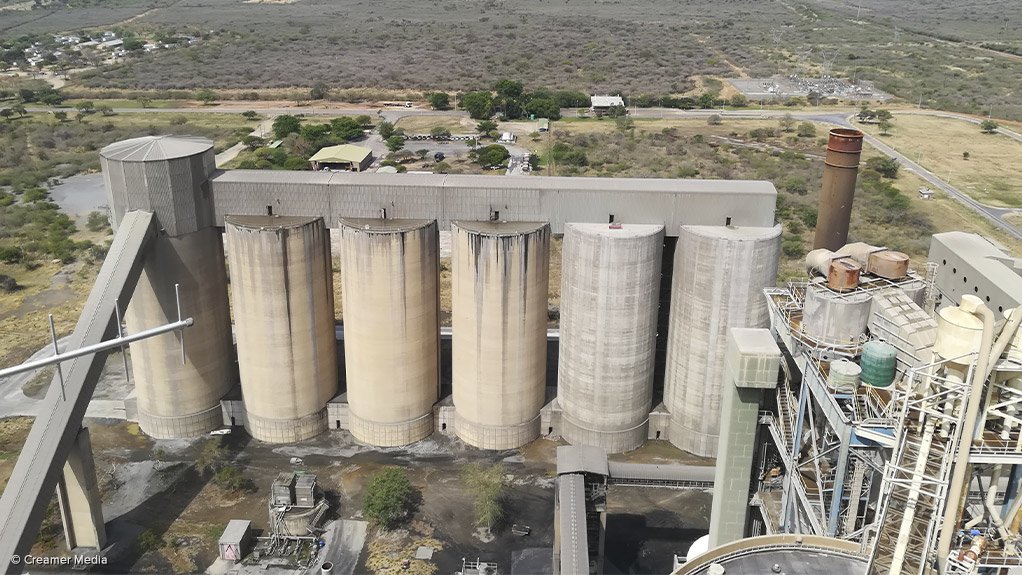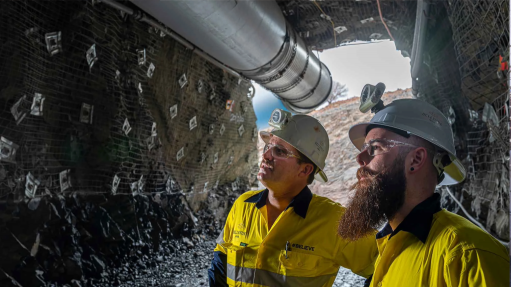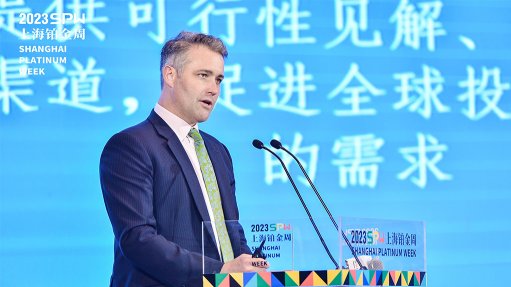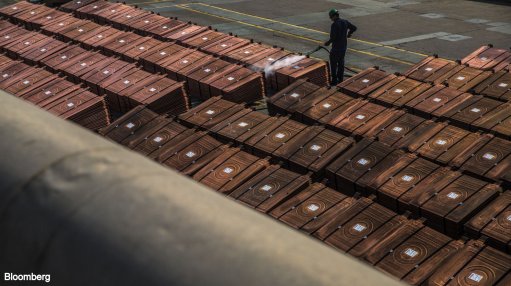Cement stakeholders solidify defence against import threat
While the quality of imported cement has been improving in recent years, it is usually not in line with the high quality of locally produced cement, the Concrete Institute (TCI) argued during a recent site visit to PPC’s Dwaalboom plant, in the North West.
The TCI reiterated that cheap imports were putting local producers at risk in an industry already contending with an economic downturn and a lack of investor confidence.
The TCI acts as an industry body for the cement, concrete and broader construction industry.
MD Bryan Perrie pointed out that the country’s cement sector had the capacity to produce 20-million tonnes a year, but was currently only producing 13-million tonnes, which meant that five-million to six-million tonnes of capacity was being wasted.
Despite the available capacity, the country still imported about one-million tonnes of cement in 2018. China and Vietnam are the biggest cement exporters to South Africa.
Perrie stressed that TCI members’ cement was of a high quality, as their product is controlled by stringent measures contained in the South African Bureau of Standards and the National Regulator for Compulsory Specifications, while end-users are given no assurances as to the quality of imported material.
Owing to the state of the economy, the end-user was opting for cheaper cement, without concern for the environmental or quality repercussions, the TCI pointed out.
Perrie highlighted that cheap imports were undercutting local producers’ products by 45%.
He explained that the cost of doing business in South Africa was very high, with local producers bearing the costs of meeting transformation targets, carbon taxes and the stringent quality control required for local production,
which foreign producers did not have to contend with. This left local producers unable to run their plants sustainably and, therefore, they are unable to undertake plant upgrades, as risks are very high.
Perrie indicated that, for the local industry, plant, equipment and property valued at R11.5-billion were at stake.
The domestic cement manufacturing industry comprises 17 plants, employing about 7 000 people. A further 35 000 jobs are dependent on the country’s cement value chain, with skills not easily replaceable in the country’s deindustrialising economy.
Further, the industry contributes to community development; provides billions of rands in taxes, including carbon tax; and adheres to quality control procedures to ensure the safety of cement products.
Perrie emphasised that, if the sector was not equalised, the problem would worsen, and these contributions would not be realised.
The country could be at risk of its cement sector shutting down, ultimately leaving it vulnerable to dependence on foreign imports, which would have significant repercussions, considering the country’s infrastructure backlogs.
TCI members stressed that they were only seeking to level the playing field, and not to stop cement imports into the country altogether.
Local producers merely want to ensure that the high cost of local production, owing to environmental and social commitments, can be applied, in some form, to importers.
Thus, the TCI engaged the International Trade Administration Commission (Itac) of South Africa in March to investigate the surge in lower-priced cement imports, and, in August requested Itac to impose safeguards to ensure the viability of the industry.
Itac has since requested more information, which the TCI expects to submit by next week.
If Itac decides the case has merit, it will conduct a formal investigation and may impose import tariffs, the level of which would depend on the country and producer in question and the trade agreements with those countries, besides other criteria.
Perrie explained that, in 2015, Itac provided antidumping relief against Pakistan, which was effective in curtailing the high level of imports from the country at that point. However, this relief soon dissipated as cother countries capitalised on the opportunity to flood the local market with cheap cement.
Secondly, the TCI has applied to the Department of Trade, Industry and Competition (DTIC) for cement to be a designated product, which will require each government-led project to buy local cement. The TCI has engaged with the DTIC since January, and is currently collating requested data.
Other mitigating action taken by the TCI involves discussions with regulatory bodies to tighten the regulation of imported cement to ensure that the quality is compliant.
Unlike other industries, cement plants are typically built on the site of the raw material to lower the cost and environmental repercussions of transporting the material. These raw material deposits are typically found in rural areas, which means that the factory becomes a means of employment and social development for the community.
Attendees stressed the importance of this, given the severity of the problem of underdeveloped rural communities.
This is perhaps no more evident than at PPC’s Dwaalboom cement plant, where the site visit afforded the opportunity to see the impact of the plant on the area and the surrounding rural communities.
Leadership from the local taxi association, tribal leaders and community representatives all expressed their gratitude to PPC for the contribution to the region by both the plant and other social initiatives that the company has undertaken.
Speaking to Engineering News on site, PPC MD Njombo Lekula indicated that the company had gone beyond its social requirements, as it realised the importance of contributing further to transformation.
One of the most notable initiatives was the construction of a road from the operation to the town, which cut travelling time down by more than half. This was a gravel road before, which resulted in long travelling times, high maintenance costs for taxi operators and employees being unable to travel to work in rainy weather.
However, owing to the state of the industry and insufficient capacity, Lekula said, the plant had been forced to cut back on some parts of its operation, such as the packaging element, and had to go through a difficult and painful process of retrenching about 90 employees.
He indicated that, should the situation not improve, both in terms of cheap imports and construction demand, cement producers might have to consider closing down operations, which would have “devastating” effects on the communities in which they operated.
Comments
Press Office
Announcements
What's On
Subscribe to improve your user experience...
Option 1 (equivalent of R125 a month):
Receive a weekly copy of Creamer Media's Engineering News & Mining Weekly magazine
(print copy for those in South Africa and e-magazine for those outside of South Africa)
Receive daily email newsletters
Access to full search results
Access archive of magazine back copies
Access to Projects in Progress
Access to ONE Research Report of your choice in PDF format
Option 2 (equivalent of R375 a month):
All benefits from Option 1
PLUS
Access to Creamer Media's Research Channel Africa for ALL Research Reports, in PDF format, on various industrial and mining sectors
including Electricity; Water; Energy Transition; Hydrogen; Roads, Rail and Ports; Coal; Gold; Platinum; Battery Metals; etc.
Already a subscriber?
Forgotten your password?
Receive weekly copy of Creamer Media's Engineering News & Mining Weekly magazine (print copy for those in South Africa and e-magazine for those outside of South Africa)
➕
Recieve daily email newsletters
➕
Access to full search results
➕
Access archive of magazine back copies
➕
Access to Projects in Progress
➕
Access to ONE Research Report of your choice in PDF format
RESEARCH CHANNEL AFRICA
R4500 (equivalent of R375 a month)
SUBSCRIBEAll benefits from Option 1
➕
Access to Creamer Media's Research Channel Africa for ALL Research Reports on various industrial and mining sectors, in PDF format, including on:
Electricity
➕
Water
➕
Energy Transition
➕
Hydrogen
➕
Roads, Rail and Ports
➕
Coal
➕
Gold
➕
Platinum
➕
Battery Metals
➕
etc.
Receive all benefits from Option 1 or Option 2 delivered to numerous people at your company
➕
Multiple User names and Passwords for simultaneous log-ins
➕
Intranet integration access to all in your organisation





















